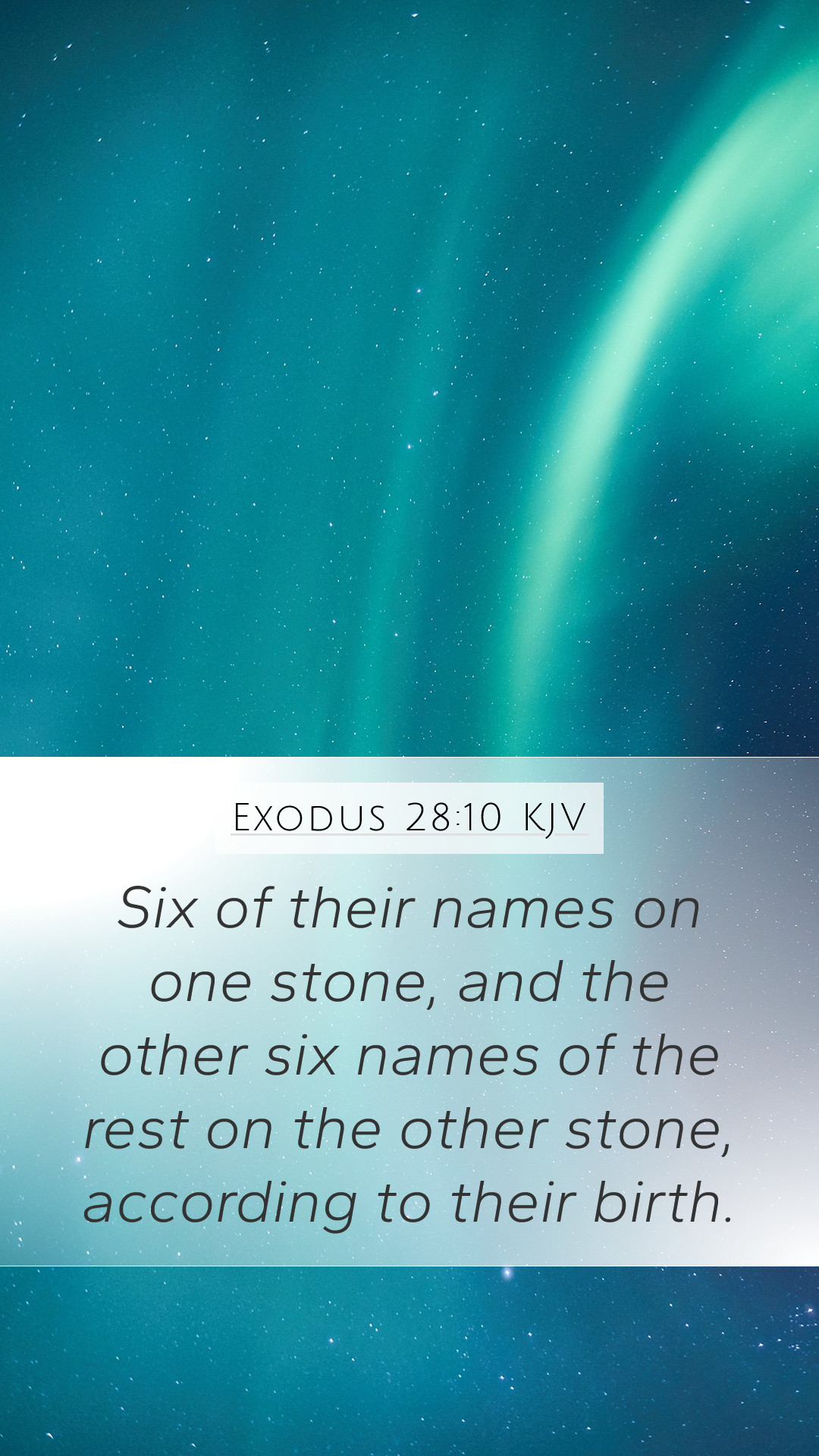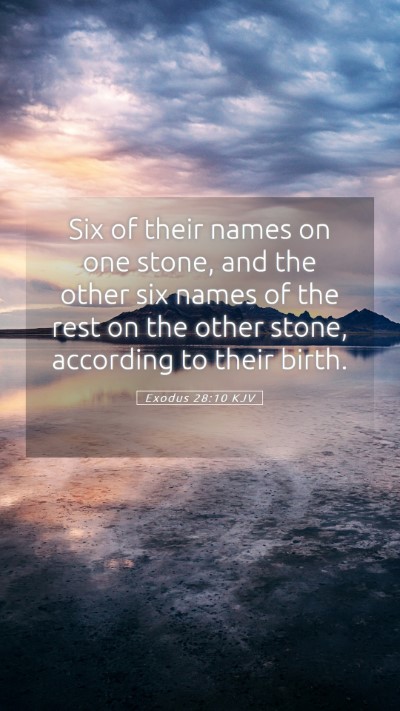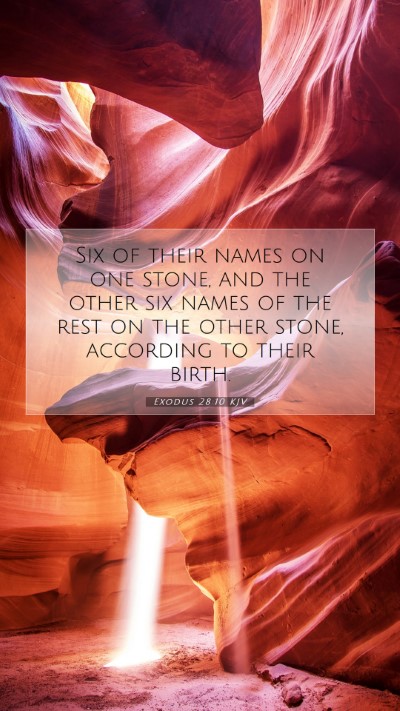Understanding Exodus 28:10
Exodus 28:10 states, "There are to be twelve stones, one for each of the names of the sons of Israel, each engraved like a seal with the name of one of the twelve tribes." This verse plays a crucial role in understanding the symbolic nature of the high priest's garments and their significance in ancient Israelite worship.
Meaning of Bible Verses
This verse highlights the importance of the tribes of Israel by assigning a physical representation of their names on the high priest's breastplate. Each stone signifies the twelve tribes, demonstrating the unity and diversity of Israel.
Bible Verse Interpretations
- Representing Israel: Matthew Henry notes that the twelve stones serve not only as a reminder of the tribes but as a representation of the entire nation of Israel before God.
- Symbolic Purpose: Albert Barnes emphasizes that these stones symbolize the high priest's bearing the names of Israelites before God, showcasing their importance in the covenant relationship.
- Historical Context: Adam Clarke highlights the historical significance, as these stones remind the high priest of his intercessory role for the people of Israel.
Bible Study Insights
Studying this verse can deepen one’s understanding of the duties and responsibilities of the high priest in Israelite culture. The breastplate of judgment represents the principle of divine guidance and decision-making.
Scripture Analysis
The specific design of the high priest's garments, particularly the breastplate with its twelve stones, conveys several theological meanings:
- Unity in Diversity: The inclusion of all tribes signifies the unity of the nation, reinforcing that each tribe has a unique role in God's plan.
- Divine Representation: As the high priest pronounces blessings, he does so while bearing Israel's names on his heart, indicating that God is concerned with each tribe's wellbeing.
- Judgment and Guidance: The breastplate is referred to as the "breastplate of judgment," indicating that the priest had to seek divine guidance in matters affecting the nation.
Application of the Verse
This verse encourages modern believers to consider their own roles in representing their communities before God. It challenges them to think about how they can bear the needs and names of others in their prayers.
In-Depth Bible Verse Analysis
In Exodus 28:10, we see a multifaceted approach to understanding Scripture. The tangible representation of the tribes on the breastplate emphasizes the significance of community and identity in the covenant relationship with God. This encourages believers to engage deeply with their faith and recognize their connections to one another.
Related Bible Cross References
- Exodus 28:12 - The high priest bears the names of the tribes on his shoulders.
- Revelation 21:14 - The twelve tribes are represented in the New Jerusalem.
- Romans 11:1 - Paul discusses God's continued relationship with Israel.
Conclusion
In summary, Exodus 28:10 serves as a powerful reminder of the communal identity of God's people and their representation before Him. This understanding enriches our Bible study experiences and encourages us to apply these insights into our daily spiritual lives.


